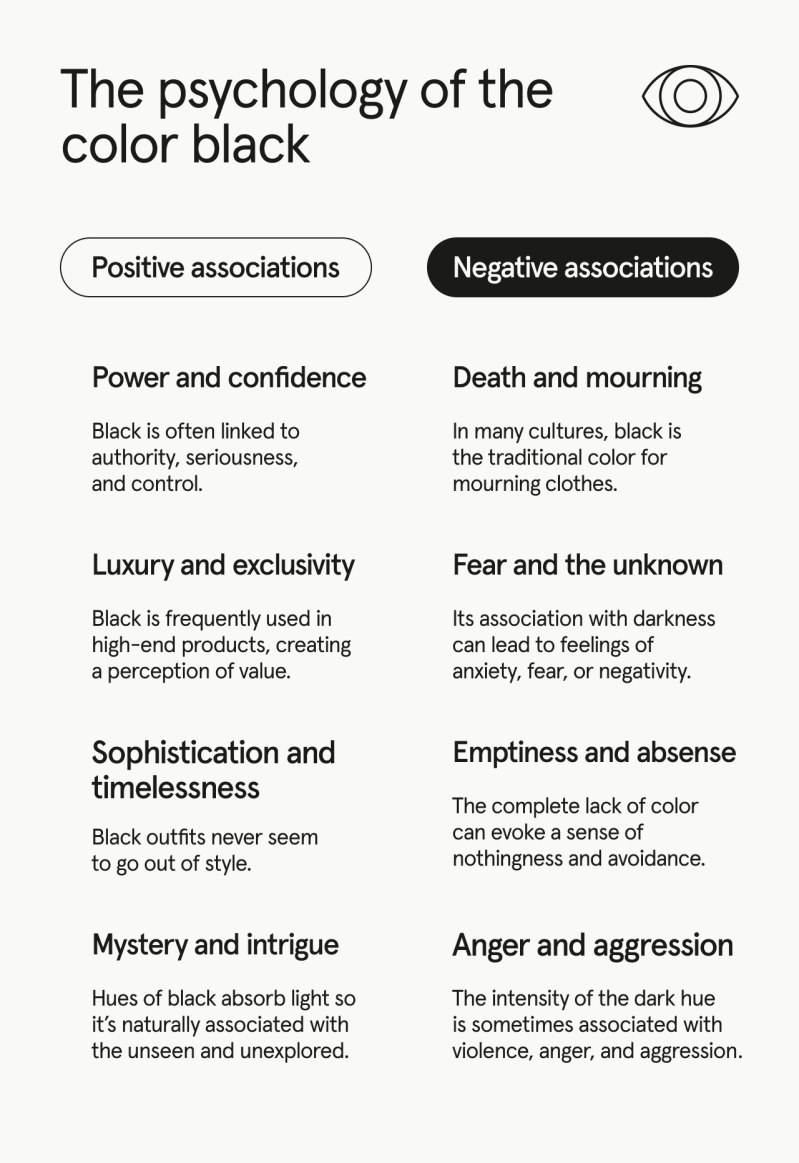What Does The Colors Symbolize – Have you ever really thought about what colors mean to you? Is there one or two colors that stand out in particular? Someone you despise? Don’t know why?
In art, colors carry deep meaning and can evoke a wide range of emotions. Each color has its own meaning and can convey a different message to the viewer. For example, red often symbolizes passion, energy, and strength, while blue can convey feelings of tranquility, calm, and stability. Yellow is often associated with happiness, warmth and optimism, while green represents nature, growth and freshness. Artists strategically use color to create mood, atmosphere, and visual impact in their artwork, allowing viewers to experience a wide range of emotions and interpretations. Understanding the meaning of colors can enhance appreciation and interpretation of art, enriching the connection between artist and audience.
What Does The Colors Symbolize

Here’s a nice little chart I found online on Louise Myers’ blog that gives you the colors and their potential meanings:
Meaning Of Orange: Color Psychology And Symbolism
This chart is helpful when creating art, especially when you want to evoke a special feeling in the finished product. When it comes to painting and creating, choosing the right color combination is key. I always use my color wheel when I need to find a combination that I know will work well together and give the piece the desired result. After all, you don’t want to use black and gray to convey happiness and joy.
The first session of my latest studio class will be this afternoon where we will delve into color selection and using the color wheel to create a winning color story. I can’t wait!
Watercolor Lessons for Beginners Watercolor Lessons Watercolor Whimsical Watercolor Courses Art Courses for Adults Art Projects Art Studio Harvard Mat Studio Learton MA Handmade Art Studio Handmade Art Harvard MA Art Studio
Previous Previous Store Update: New Crafting Kit Now Available! Get out your colored pencils and have some creative fun! But color is actually one of the first features that prospects and customers notice and interpret when interacting with your brand. In fact, 90% of the first impression of a brand is based on its color!
The Meaning Of Colors: How 8 Colors Became Symbolic
Colors are subconsciously linked to emotions and mindsets, and their meanings vary depending on where your business (and your audience) is in the world. It goes without saying that choosing the right colors for your organization can help your brand succeed.
As we all know, yellow is the most visible color from a distance and is otherwise considered a warning color. However, in most cases, yellow conveys the concept of happiness and positive energy, as well as the concepts of mental clarity and wisdom.
In Latin America, yellow represents death and mourning, while in Germany it represents envy and envy (think “jealous green,” only replaced by yellow).

In business, yellow often exudes a sense of affordability, youthfulness and energy, which can bring warmth to the audience. In addition to supporting positivity, yellow is known to stimulate hunger, just like red. This color may be a good choice for businesses targeting young people or any industry related to the food industry.
Color Meaning, Symbolism, And Psychology: What Do Different Colors Mean
Green is often associated with nature, freshness and the environment, as well as everything related to health and well-being. Although it is a very striking color, it is not too “out there”, so it also conveys a sense of stability and moderation. In the United States, green can also represent wealth as it is associated with the color of money.
On the business side, green health connotations are suitable for organizations such as hospitals, pharmacies, energy and pharmaceutical companies, or any activities related to healthy lifestyles.
In digital marketing, green is said to convert better because of its association with “go.” That’s why call-to-action buttons like “Download” or “Buy Now” are often green to inspire users to take those actions.
Blue is considered universally the most common “favorite color,” probably stemming from the fact that it promotes loyalty and authority. As a communicator of reliability, communication and trustworthiness, this color is versatile and can serve as the primary symbol for organizations in many different fields.
Color Meanings: The Psychology Of Using Different Colors
In business, blue is used to represent communication (social media, technology companies and electronics), reliability (banking and insurance groups, airlines, car manufacturers) and well-being (pharmaceuticals).
Purple is known as the “royal color”. While textile dyes come only from natural products, purple natural dyes from sea snails are the most complex. Therefore, only members of the royal family can afford it. Generally speaking, purple is thought to emphasize wealth and luxury. Of course, there are exceptions. For example, in Italy and Brazil, purple represents death and mourning.
In business, purple is often used in products for women and children, and is also used to depict academic talent and intelligence. The visually calming properties of this color also help convey disruptive technological advances and themes related to healthcare and finance. Our own purple builds our brand personality with originality, ingenuity and vision.

The color red has many different contextual meanings and can have a huge impact if used carefully when it comes to branding. Red is able to depict opposite emotions: from danger and anger to love and passion. But red also symbolizes confidence and strength, helping you stand out from the crowd. Keep your audience in mind when using this color in Turkey and most African countries, red means death and mourning.
The Meaning Of Different Jewelry Colors
In business terms, red can be associated with: loud, playful, youthful and modern. It’s an eye-catching, vibrant color, and some say it even stimulates hunger pangs. In marketing, red is often used for timed sales offers or last-minute campaigns to evoke a sense of urgency and get people to act quickly.
Orange will give you a balance between the ferocity of red and the joy of yellow. Globally, its typical meanings vary between health, confidence, happiness and positivity, but it is also seen as a warning sign of dangerous situations.
In business, orange often means creativity, originality and risk-taking. If used sparingly, orange can exude true confidence. For example, while this may be the right choice for a company targeting children and young adults, it may not have the desired effect if you are trying to promote a more traditional or luxury brand.
As we all know, pink is a stimulating, calming, and warm color. It is also associated with tenderness and happiness, as the phrase “seeing life through rose-tinted glasses” illustrates. As a light red, it also inherits the connotations of love and care associated with this color. In most societies it is associated with femininity. However, in Belgium it is traditionally used for baby boys. In other words, pink is very adaptable.
What Flag Colors Symbolize
In business, pink often represents concepts of modernity, friendliness, youth and luxury. In the world of marketing, pink is most commonly used to endorse beauty products and cosmetics, and would never appear on Valentine’s Day.
In business terms, it is a suitable color for retail and environmental organization branding if you want to give a healthy, grounded and elegant impression. You’ll also find it a go-to color for brands associated with brown goods like wood, leather, and chocolate, especially in the luxury sector.
Black is another color that represents a range of different meanings. From negative meanings such as death, mourning, sin, and darkness, to positive meanings such as grace, maturity, power, wealth, and sophistication.

In business, black is associated with masculinity, luxury, power and exclusivity. This is a great color for fashion giants and high-tech companies. While black represents luxury and confidence, it can also be a conservative and intimidating color. But it’s also generally highly adaptable and is often combined with other colors to make visual effects pop. After all, any other color can be paired with black!
Cross Cultural Emotion And Symbolic Meanings Of Color
White is most commonly thought to represent purity, peace, and elegance. However, in some parts of the world, such as India, China and Japan, it is associated with death, mourning and misfortune.
In business, white represents elegance, sophistication and even cleanliness. Since most brand support is white, you usually need to choose another color to make it stand out. It is also often used as a neutral color, as a fill color or as a secondary accent color in logos for technology, automotive and healthcare brands.
In design, white is extremely valuable for its “white space” effect between columns, lines, and shapes, as it provides clarity and room for the eye to breathe.
Now that you know how to use color spectrum to convey the right message through marketing visuals, it’s time to put your brand to the test. Check out our infographic “The Meanings of Colors Around the World” to find out whether the colors you use help or hurt your brand’s perceived personality! I’ve been there many times! It can be hard to know what colors to use in your art, especially if you’re new to
Understand Color Symbolism
What does the lotus symbolize, what does the hamsa symbolize, what does the menorah symbolize, what does colors symbolize, what does the crow symbolize, what does the bindi symbolize, what does the rosary symbolize, what do rose colors symbolize, what does the hummingbird symbolize, what do colors of roses symbolize, what does the buddha symbolize, what does the poppy symbolize






